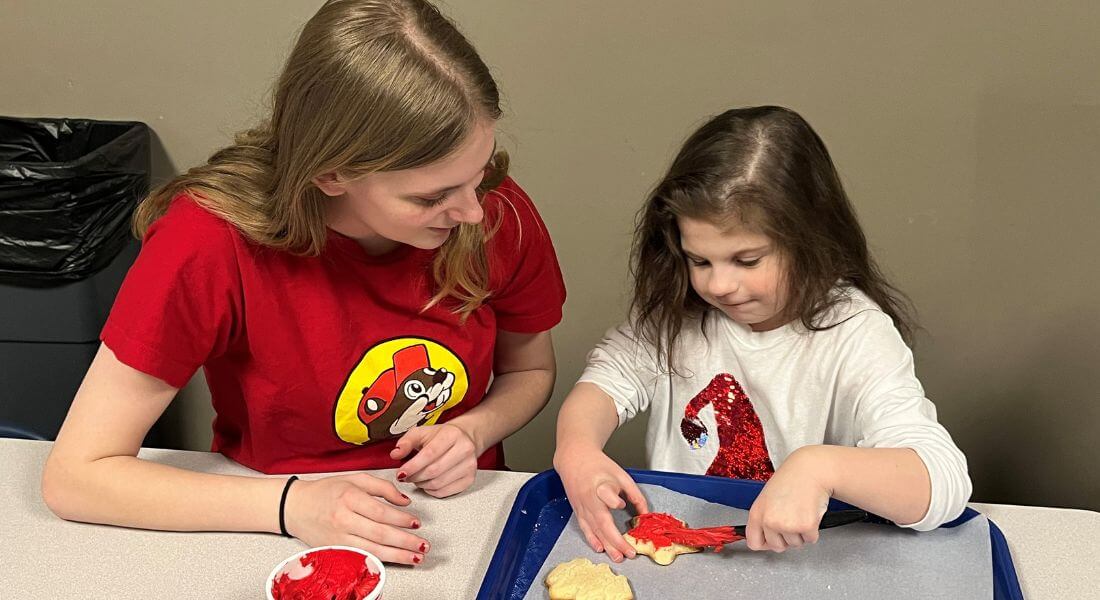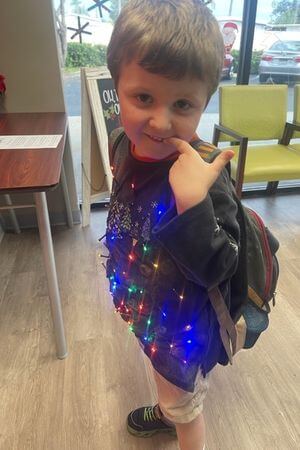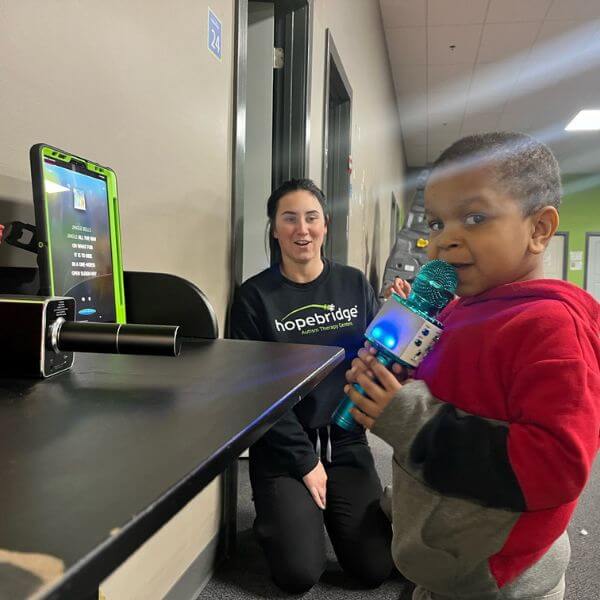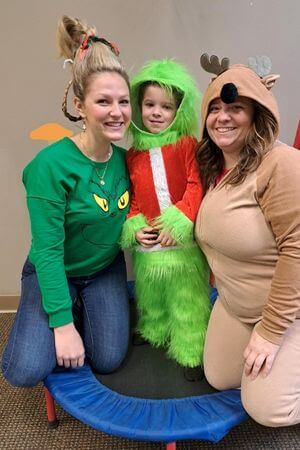5 Ways to Support the Autism Community During the Holidays
December 20, 2022
December 20, 2022

What do the holidays mean for you? Maybe it’s the sounds of Mariah Carey’s Christmas album, the sights of perfectly wrapped presents alongside a twinkling kinara, the feel of warm and cozy sweaters, or the scent of latkes frying on the stove. For many, it’s a room full of family celebrating together. If you have loved ones touched by autism spectrum disorder (ASD), however, the holidays might look – and feel – a little different.

Some of the traditional things that bring joy to others this time of year can be overwhelming for our autistic family members, friends and neighbors. If you are celebrating with someone in the autism community this year, either at home, at church or in your place of business, there are ways you can help them and their caregivers.
Here are a few ideas on how you can make the holidays a bit more merry and inclusive for people of varying abilities:
1. Just ask!
Autism affects everyone differently, so ask how you can help. Engage your party guests to learn their likes and dislikes regarding food, gifts and the environment. For example, ask if there’s a special item you can put on the menu, what type of gift is preferred, what their triggers might be, and what they enjoy about the holidays.
2. Discuss plans in advance.
If you are hosting, tell the individual or caregivers what to expect. For instance, share your party plans, décor ideas and a schedule of the day’s events (e.g. Are you opening gifts before or after dinner?). When giving a gift to a child with autism, consider telling their caregiver what you have planned for the present and how it will be wrapped. This helps them prepare.

3. Limit stressors.
Sensory overload can cause difficulties for some individuals with autism, so it may be best to limit loud sounds, flashing holiday lights and other potentially stressful stimuli, unless you have guests who are sensory-seekers and their parents think they could add some extra enjoyment to the ambiance. For others, social anxiety may be a challenge, so pause on hugs and kisses unless they seek them out. This can keep your guests comfortable and safe.
4. Create a safe space.
Offer a quiet, calm place that children or adults with autism can go if they feel overwhelmed. Equip the room with preferred items and other support tools, such as fidget toys, a weighted blanket or headphones. Make sure caregivers know about the space so they can teach their loved one where to go in case they need a break. Scheduling and offering breaks in between activities can also help with transitions.

5. Model desired behaviors, but don’t be a stickler on manners.
Phrases like “please” and “thank you” are appreciated, but we don’t recommend making them mandatory. Understanding traditional etiquette around gifts and how to react in social scenarios can be difficult for those with autism, especially if they are non-speaking or learning to communicate in a new way. It is helpful to keep an open mind and loosen judgement in these instances.
This may not be the holiday you envisioned, but creating new traditions – like adding cereal to the Chanukkah spread or experiencing a smaller, more intimate worship service – can be fun. The goal is not perfection, but rather to share the love with others in a meaningful way this holiday season.
From all of us at Hopebridge, we thank you for taking the time to learn and care about others. Autistic individuals and their families will be so grateful you put in the effort to make their day special, too!
From a Christmas social story, to autism-friendly gift guides, to even more holiday tips, we’ve got you covered this winter. Or, if you’re looking for more support to help your child reach new opportunities and independence, reach out to us to talk about how Hopebridge Autism Therapy Centers is here for your family all year round.
*Informed consent was obtained from the participants in this article. This information should not be captured and reused without express permission from Hopebridge, LLC. Testimonials are solicited as part of an open casting call process for testimonials from former client caregivers. Hopebridge does not permit clinical employees to solicit or use testimonials about therapeutic services received from current clients (Ethics Code for Behavior Analysts 5.07-5.08; BACB, 2020). Hopebridge does not provide any incentives, compensation, or renumeration for testimonials provided by a former client or client caregiver.